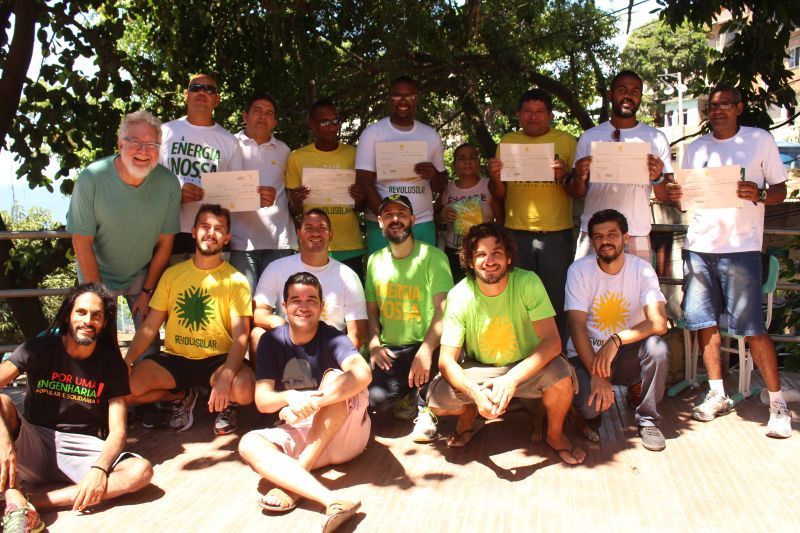Solar energy coop lowers energy bills for families in two Rio favelas

Affordable energy has become a reality for 35 families in the Babilônia and Chapéu Mangueira favelas of Rio, thanks to a new energy cooperative funded through the ICA’s Youth Replication Project.
The non-profit behind the project is Revolusolar, which has been working in the favelas since 2015. With new regulations in 2016 enabling residents to set up cooperatives to install grid-connected solar systems and get paid for contributions to the grid, Revolusolar started exploring how the model could be used in the context of favelas.
In 2020, Revolusolar – one of nine Youth Replication Projects winners – received a grant of €10,000 along with mentorship and support from the ICA Youth Network to help it set up the co-op and install solar panels.
As part of the scheme, a 26 kWp solar power plant was installed in March 2021 and by August the system began operating, generating a 30% reduction in electricity bills for the 34 families, who save a joint total of BRL2,500/month (USD467) through the co-op.
While the co-op is managed by its members, Revolusolar provides operational and technical assistance. The organisation has also trained nine local residents as electricians and installers, including Suzi Freitas and Natalia Nazario, who became the first female installers of solar energy in favelas in Brazil and have since been hired for solar projects outside the favelas. Revolusolar has also conducted 68 workshops with 60 children and teenagers.
The co-op must also collect monthly payments from members to cover operational costs and pay for renting the solar equipment, which is owned by Revolusolar. It says the model of monthly contributions by the cooperative members is an important step in evaluating the overall feasibility of the solar cooperative model in favelas.
Getting the project off the ground was not without challenges, particularly due to lockdown restrictions as a result of COVID-19. This meant that Revolusolar had to pause some activities and reduce the size of the professional training classes.
Solar energy is an untapped resource for Brazil. According to the Brazilian electricity regulatory agency, Aneel, solar energy accounts for just 0.02% of the country’s energy with (70%) from hydropower.
The creation of the cooperative attracted the media’s attention - Revolusolar was featured in 40 online stories. Furthermore, its Executive Director, Eduardo Avila, was selected as a regional finalist in the Young Champions of the Earth Programme run by the United Nations Environment Programme.
